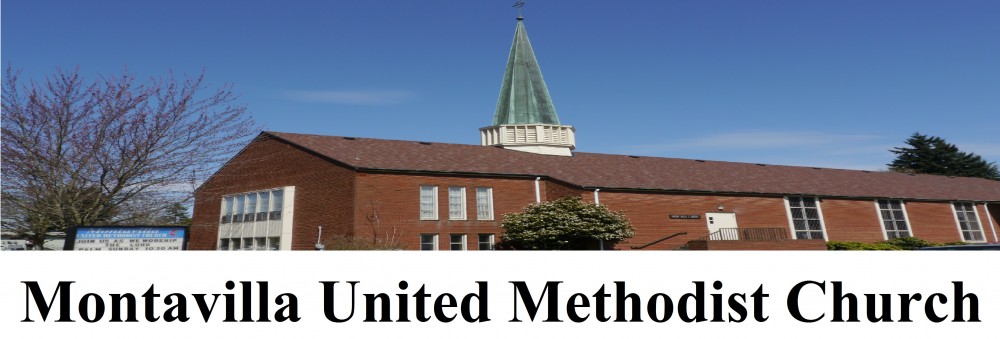James 1:19-27
Know this, my dear brothers and sisters: everyone should be quick to listen, slow to speak, and slow to grow angry. 20 This is because an angry person doesn’t produce God’s righteousness. 21 Therefore, with humility, set aside all moral filth and the growth of wickedness, and welcome the word planted deep inside you—the very word that is able to save you.
22 You must be doers of the word and not only hearers who mislead themselves. 23 Those who hear but don’t do the word are like those who look at their faces in a mirror. 24 They look at themselves, walk away, and immediately forget what they were like. 25 But there are those who study the perfect law, the law of freedom, and continue to do it. They don’t listen and then forget, but they put it into practice in their lives. They will be blessed in whatever they do.
26 If those who claim devotion to God don’t control what they say, they mislead themselves. Their devotion is worthless. 27 True devotion, the kind that is pure and faultless before God the Father, is this: to care for orphans and widows in their difficulties and to keep the world from contaminating us.
Message: “James Said: Be a Doer” Rev Heather Riggs
What does it mean to be a Christian?
When I was 18 years old I was attending an evangelical youth group with a friend from highschool where, every week, they invited students to dedicate their lives to Jesus. We were all asked to close our eyes and put our heads down and if we wanted to invite Jesus into our hearts we could raise our hands and nobody but the youth pastor would know. Of course, *everybody knew* if you had put your hand up, because the youth pastor would take you aside and lead you in a statement of faith. The statement of faith was something vaguely related to the book of Romans, where we were invited to profess our faith that Jesus is our Lord and Savior, and we were willing to live as followers of Jesus. The youth pastor would add your name to the list of newly “saved” youth and connect you with a mentor if your parents didn’t attend the church.
I know this because one warm, spring afternoon, I raised my hand and professed my faith, but the truth is that I already believed in God.
- I had believed in God since Kindergarten, when Mrs. Valentine first showed me the stories of Jesus with the magical flannelgraph.
- When I learned how to read, I tried to read the King James Bible from beginning to end, but I got stuck in Leviticus.
- I learned to pray at the age of 8 in remedial Catechism, when my father married a Roman Catholic, and I requested the story of the Good Samaritan, when the Priest asked what scripture we would like for the homily for our first communion.
So clearly, I already *believed* in God, before I raised my hand in Youth Group. And since I already believed that Jesus was my Lord and Savior, I was already “saved,” long before I raised my hand. But what the youth pastor didn’t know, was that God and I were involved in a different conversation.
While everybody’s heads were down, the voice in my head thought at me, “follow me.”
And I thought, “if you heal me, I will follow you.”
The voice said, “yes.”
I thought back, “No, I mean really heal me, not just, I learn how to deal with my abusive parents. I want a better life. I want to not be depressed and hurting all the time. I want to be completely healed.”
The voice said, “yes, healing.”
So I thought back, “I will follow you,” and I raised my hand.
Then I committed myself to following Jesus.
- I went to church twice a week, Sundays and Wednesday nights.
- I went on a mission trip where I went door to door inviting people to pray the sinner’s prayer and come to church…which is probably the least effective form of evangelism known to humans!
- I joined the Praise Team.
- And I skipped my senior prom because dancing wasn’t considered moral in this evangelical church.
But the more I studied the Bible, the more I began to realize that Jesus didn’t say anything about dancing being immoral.
Jesus actually said quite a lot about caring for widows and orphans, and Jesus had some not nice things to say about rich people, especially about rich religious leaders, who are concerned about things that aren’t really sins.
All of these thoughts happened over the course of several years in which my life kept getting better and better, until I found myself working as a Music Director in a Lutheran Church and reading the book of James.
The book of James is my favorite book of the Bible because James showed me how to be a follower of Jesus and not merely a believer.
The Book of James was probably not written by the apostle James, the brother of Jesus, but by another James. The Book of James is also not a letter to a specific community of Jesus followers. There’s no greeting to specific people at the beginning or farewells at the end. Marcus Borg suggests that James was written for a Christian Jewish community because in chapter 2 verse 2, the word used to describe the local church is the Greek word from which we derive the word, “synagogue.” (Evolution of the Word, p194) Borg thinks the Book of James was written in the 70’s or 80’s (of the first century, not in the age of disco!), so after the Gospel of Mark, but before the Gospel of Matthew, because James seems to have a fresher take on some of the stories that are included in Matthew and Luke.
The Book of James is not about orthodoxy, which means right belief. James isn’t trying to make meaning of the resurrection or connect the Hebrew Bible with the stories of Jesus.
James is about orthopraxis — that’s a big word for doing the right thing.
Ortho – means right
Praxis – means practice, or actions.
James is a practical guide for following Jesus.
And yet, James references more sayings of Jesus than any other New Testament book besides the gospels (Evolution of the Word, p196)
And James does not waste time in getting right down to it!
After a brief reminder to be in prayer, James echos Mary’s song at the beginning of the gospel of Luke in verse 9, and Isaiah 40’s poem about fading flowers in verse 10.
“Let the believer who is lowly boast in being raised up, and the rich in being brought low, because the rich will disappear like a flower in the field.”
The rich will be brought low and will disappear like a flower withering in the desert heat???!!!
James does not respect the rich!
Next James takes on the terrible excuse of, “the devil made me do it,” and insists on personal responsibility for our choices, in verses 13 and 14.
“No one, when tempted, should say, “I am being tempted by God”; for God cannot be tempted by evil and he himself tempts no one. But one is tempted by one’s own desire, being lured and enticed by it”
Then James encourages generosity in verses 17-18.
James says A LOT in very few words and he is pretty blunt about it!
Then we come to today’s reading.
In verses 19-21 James tells us to listen more than we speak and to be in control of our anger, because our anger doesn’t lead us to God’s righteousness.
But what I really wanted to talk about today is verse 22.
This is the verse that cracked my faith open like an egg.
Here I was, trying to follow Jesus with my whole heart.
- Working in a church as the music director.
- Leading worship, writing liturgy and music.
- Teaching young people how to lead worship.
- Spending hours every week at the church.
- Annoying the heck out of my friends and family, trying to convert them to Christianity, because Matthew 28:19-20 told me to, make disciples of all nations, baptize them and teach them to obey everything that Jesus commanded us.
But, what had Jesus commanded us?
What are Christians supposed to do?
I had been taught that Christians are supposed to make disciples, who make disciples, who make disciples…and here’s James saying that we ought to be doers of the word not just hearers.
And here I was spending all my time crafting worship so that people could hear the word, which is good, but then what are we supposed to do?
And if we’re supposed to be doers of the word and not just hearers, then does that mean that being a Christian is about more than just believing and going to church to hear the word?
James cracked my faith open like an egg, and I felt like I was left holding the shell of a faith in my hands and the substance of my faith, the real doing part of following Jesus had landed sunny side up on the floor. I began to wonder if following Jesus was messier than just going to church.
Leaving me asking, What does it really mean to be a Christian?
All that time I thought that being a Christian meant going to church and talking other people into going to church. Christianity as Churchianity.
And here’s James reminding me that following Jesus means more than just believing in Jesus. Following Jesus means doing the things that Jesus did and Jesus taught.
Or as James put it, in verse 27:
“True devotion, the kind that is pure and faultless before God the Father, is this: to care for orphans and widows in their difficulties and to keep the world from contaminating us.”
Next week we’ll explore James chapter 2. Where James challenges us to show him our faith.

